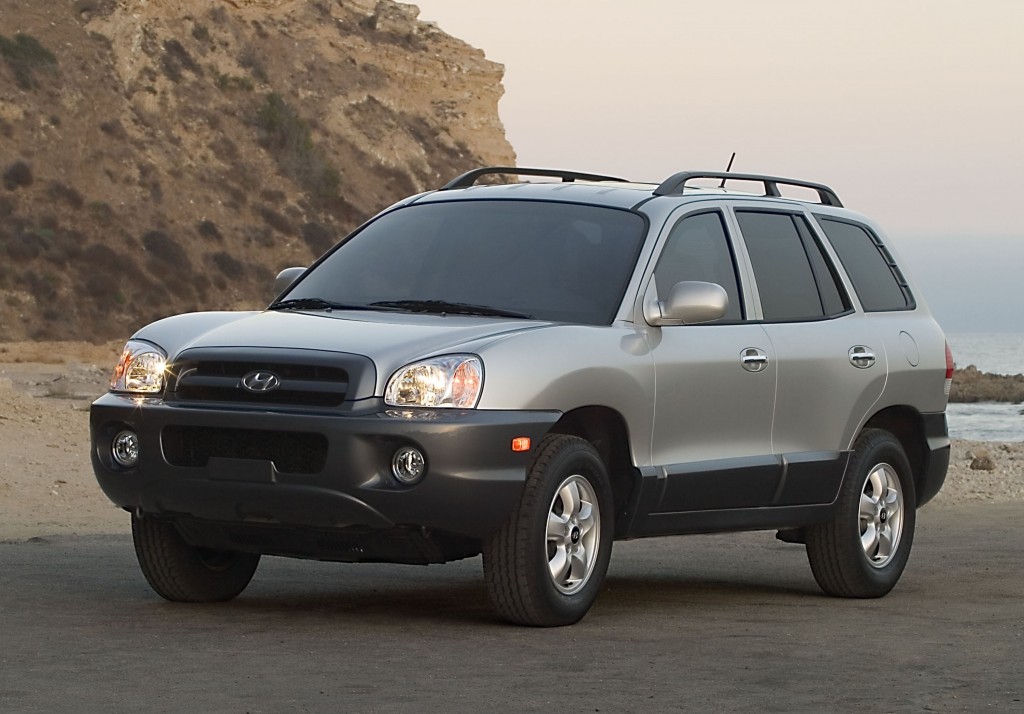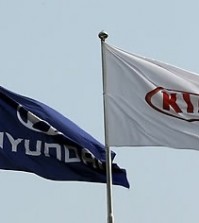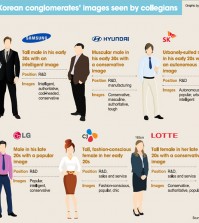- California Assembly OKs highest minimum wage in nation
- S. Korea unveils first graphic cigarette warnings
- US joins with South Korea, Japan in bid to deter North Korea
- LPGA golfer Chun In-gee finally back in action
- S. Korea won’t be top seed in final World Cup qualification round
- US men’s soccer misses 2nd straight Olympics
- US back on track in qualifying with 4-0 win over Guatemala
- High-intensity workout injuries spawn cottage industry
- CDC expands range of Zika mosquitoes into parts of Northeast
- Who knew? ‘The Walking Dead’ is helping families connect
Hyundai to compensate Santa Fe owners for ‘exaggerating’ mileage

This undated photo provided by Hyundai shows the 2005 Hyundai Santa Fe. Hyundai is recalling more than 419,000 cars and SUVs to fix suspension, brake and oil leak problems. The biggest of three recalls posted Friday, Aug. 1, 2014, by U.S. safety regulators is of 225,000 Santa Fe SUVs from 2001-2006 to replace front coil springs that can rust and crack in cold-weather states. The springs can fracture and make contact with a tire, potentially causing a crash. (AP Photo/Hyundai)
(Yonhap) — Hyundai Motor Co., South Korea’s No. 1 automaker, said Tuesday it will compensate Santa Fe owners up to 400,000 won (US$388) after the government ruled the fuel economy of the midsize SUV was exaggerated.
The company said the voluntary measure is being taken in light of the confusion the mileage controversy has caused among people who bought the 2-liter front-wheel drive version of the popular crossover SUV with automatic transmission.
“Regardless of the discrepancies within the government, as the manufacturer of the vehicle in question, Hyundai Motor will reimburse customers for extra fuel costs and any inconvenience incurred,” it said in a press release.
It added that following instruction forwarded by the transportation ministry, Hyundai Motor will adjust the fuel economy label for the Santa Fe 2L from 14.4 kilometers on a liter of diesel to 13.8 km/l.
The new number is based on tests carried out by Hyundai according to the mileage calculating systems set by the transportation ministry.
The flagship company of Hyundai Motor Group, the world’s fifth-largest automotive conglomerate in terms of sales, however, maintained that the mileage issue occurred not because it intentionally exaggerated fuel economy figures but because of a difference in equipment and standards. The discrepancy in fuel economy, depending on the test, was as high as 8.3 percent for the Santa Fe.
Santa Fe’s original mileage was derived by agencies under the industry and commerce ministry. Similar reviews carried out by the transportation ministry resulted in conflicting numbers because of a difference in the test cycle and the equipment used.
The government in late June said it recognized problems in the testing regime and pledged to streamline and unify testing rules to reduce confusion among consumers and carmakers.
Besides Hyundai’s Santa Fe, Ssangyong Motor Co., the local unit of Indian SUV maker Mahindra & Mahindra Ltd., Audi, Volkswagen, BMW and Chrysler were all cited for exaggerating fuel economy in certain models.
Ssangyong said it will follow set administrative procedures to find out why its Korando SUV was determined to have exaggerated its fuel economy, by as much as 10.7 percent.
It said the company is not trying to dodge its responsibility in any way, but just wants to know the process followed by the transportation ministry when determining vehicle mileage.
“The plan is to be present at public hearings, express the company’s views and then take the appropriate course of action,” a company source said.
Santa Fe owners will be notified of compensation details via mail or email, a process that could take several months, according to Hyundai. The cash compensation will be made to both new car and secondhand car owners and mirrors actions taken in countries such as the United States.
Compensation will be based on the difference between the originally stated fuel economy and the revised figures in consideration with the average distance traveled and how long the consumer has owned the vehicle, it said. The distance traveled by each car has been calculated at 14,527 km per year, which is the national average for SUVs with an engine displacement of under 2 liters.
Extra money will be given to reflect the inconvenience caused.
Based on industry figures, there are some 140,000 Santa Fe vehicles built in the last five years that have the 2L diesel powertrain in South Korea. The vehicles include previous generation Santa Fe crossovers and the latest third-generation models that started reaching consumers in 2012.
“If each of these Santa Fe owners got the max amount of money, the total to be paid by Hyundai can hit 56 billion won, although the actual sum should be far less since payment will be based on how long the car has been owned by a person,” an industry observer said.
Despite actions taken by Hyundai, Santa Fe owners who have sued the carmaker for exaggerating mileage claims said they do not plan to drop the legal proceedings, claiming that the compensation being offered is too small. At present, there are some 1,785 people who have gone to court against Hyundai and other carmakers named for inflating fuel economy.
Hyundai said it is willing to pay necessary fines if the government decides to take such action. Industry insiders speculated that Hyundai’s fines could reach as high as 1 billion won.
Hyundai Motor shares closed at 232,000 won on Seoul’s main bourse on Tuesday, an increase of 0.43 percent from the day before. The KOSPI edged up 0.1 percent.
The company made the compensation announcement during trading hours.












![일본 사도광산 [서경덕 교수 제공. 재판매 및 DB 금지]](http://www.koreatimesus.com/wp-content/uploads/2024/07/PYH2024072610800050400_P4-copy-120x134.jpg)


